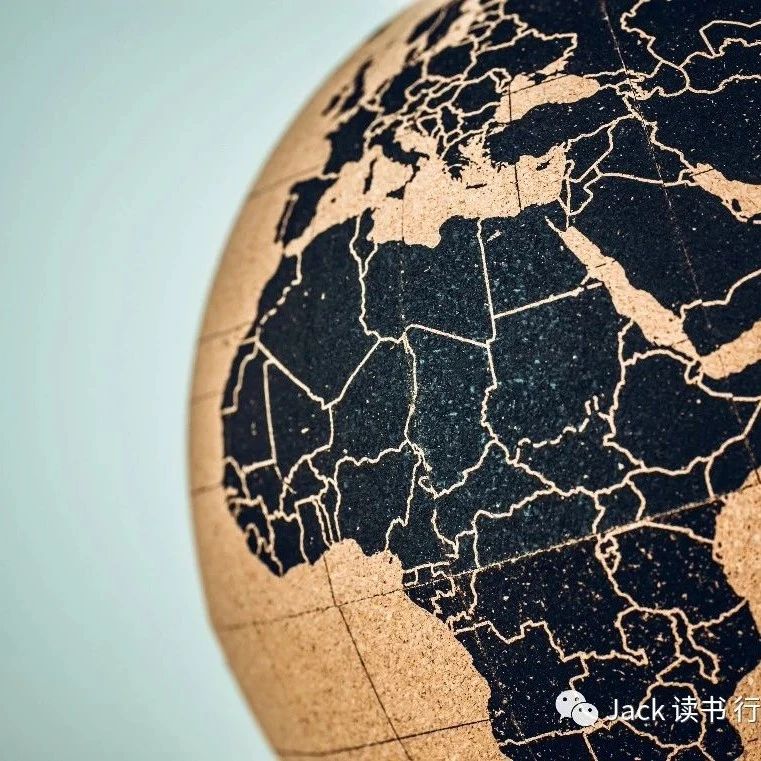Africa - The "Shackled Continent" 非洲 - “被带上镣铐的大陆”
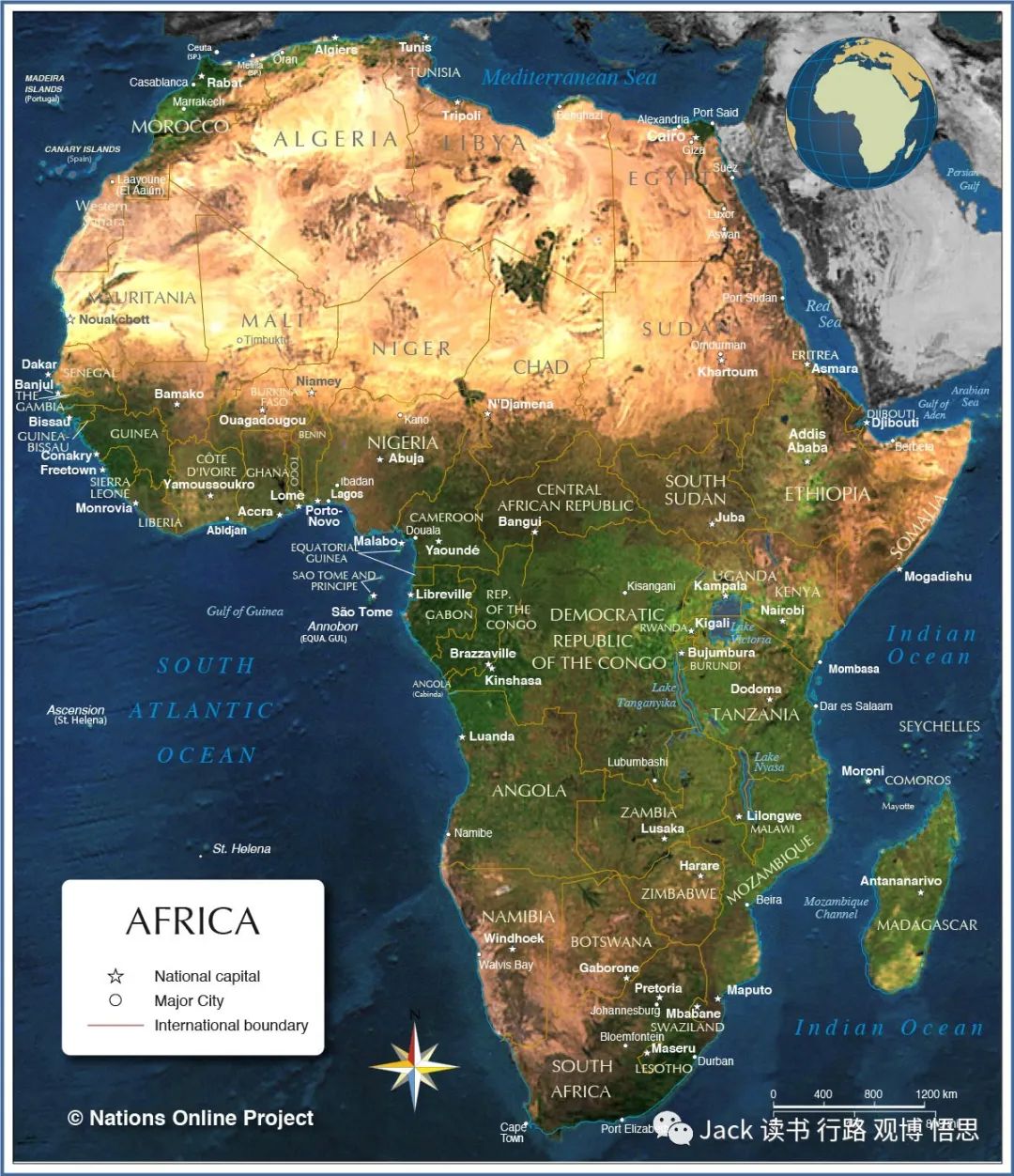
Africa has often been called the “shackled continent”. There have been a lot of actions being taken to try to remove the “shackles” from Africa. But generally, for the past several centuries and decades, the world has not witnessed much substantial economic or political developments in Africa, and it probably will not witness much in the future. This is due to long-lasting impacts that stem from numerous “hot” conflicts, the overall disadvantageous natural environment, and rampant corruption.
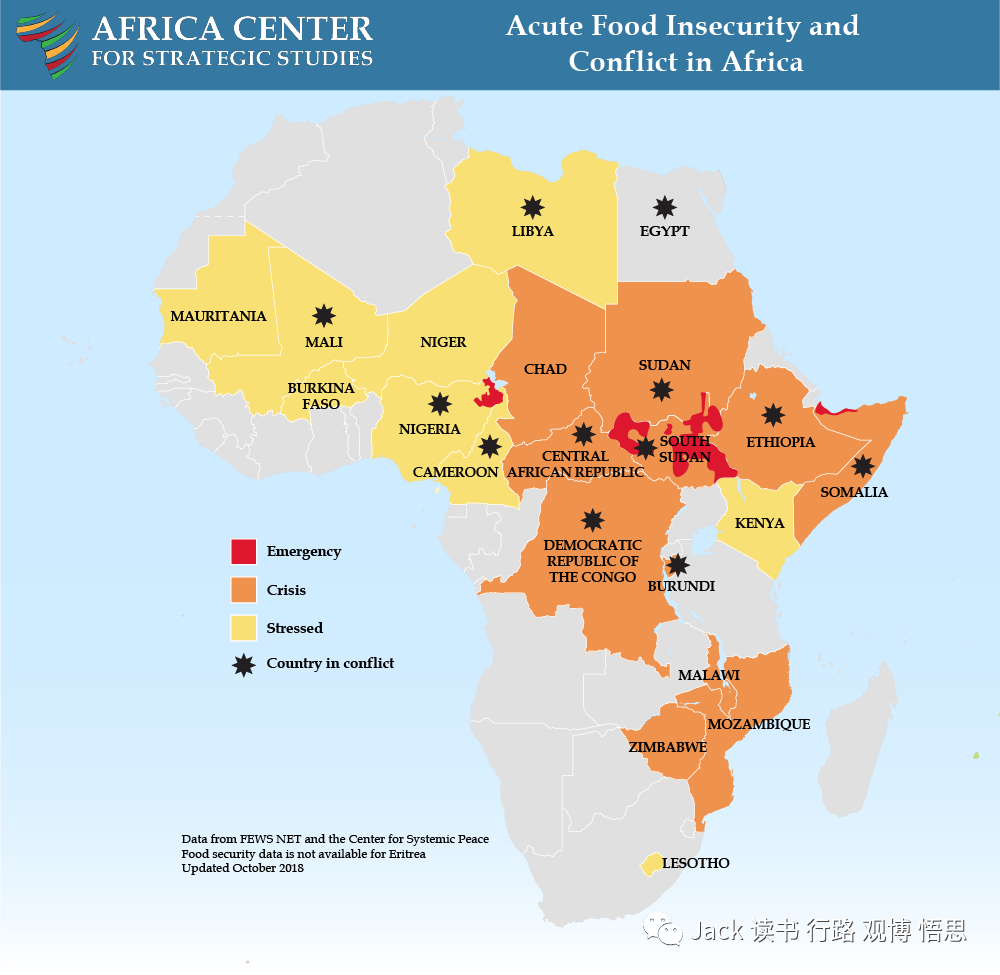
(The multiple conflicts in Africa)
The hope for economic progress is slim in Africa – firstly due to the long-term conflicts in the region. It seems that Africa, as a continent, walks hand in hand with violence. The large-scale conflicts that have been happening in multiple places throughout Africa can be attributed to the chaos left by the European colonists. In the 15th, 16th, and 17th centuries, various European powers such as Great Britain, France, and others exploited and invaded numerous parts of Africa. Their purpose was to take control of the lush natural resources, tap into the slave market, and establish colonies (Marshall, 2016, p. 121).
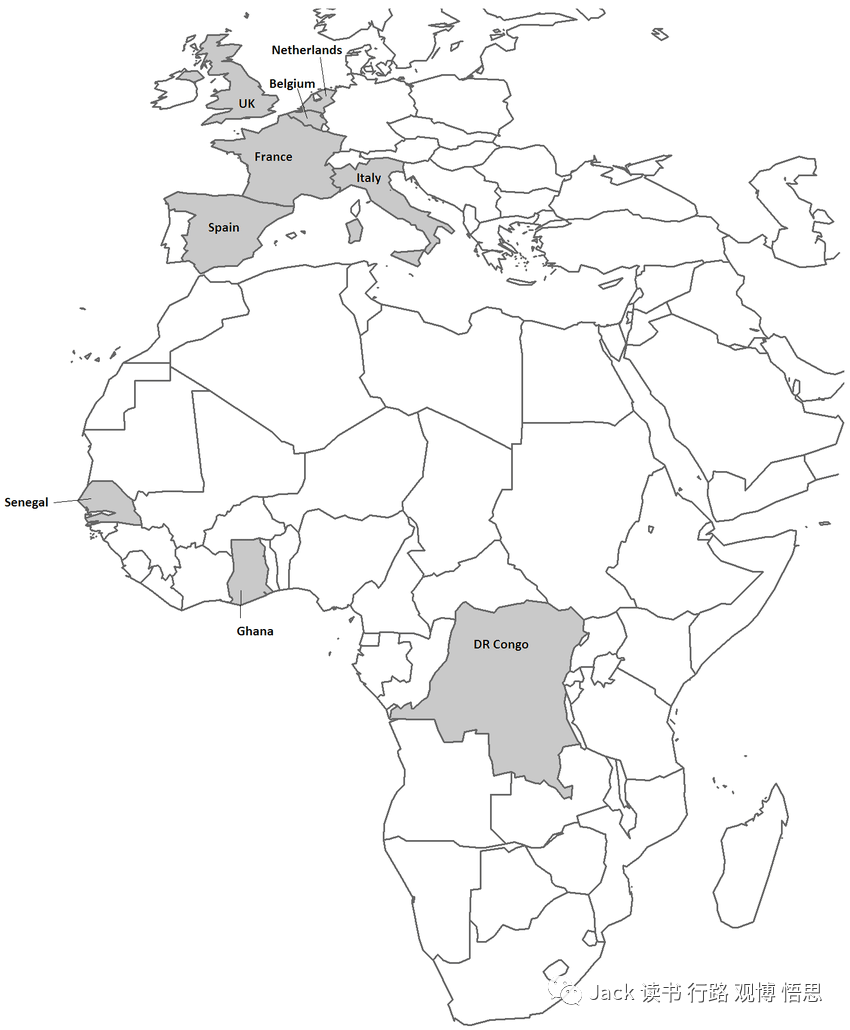
(A map showing the major European and African countries that were involved in European colonization)
Back in the great European capital cities, governments took out the contour maps of Africa and drew lines on them to mark their new territories. However, just as the renowned British journalist, and author Tim Marshall wrote in his book Prisoners of Geography, “...these lines were more about how far each power’s explorers, military forces, and businessmen had advanced on the map than what the people living between the lines felt themselves to be, or how they wanted to organize themselves.” As a result of rash decisions, many regional conflicts have started to poison the African continent (Marshall, 2016, p. 122).

(A detailed map of the Democratic Republic of Congo)
For example, take the Democratic Republic of Congo (“The DRC”). The people in the DRC are divided into more than two hundred ethnic groups, and there are several hundred languages spoken across. The DRC was previously colonized by the Belgians, who did not consider how the locals agreed on respective territories and simply divided them up. As a result, when the Belgians left in 1960, civil wars began immediately and only intensified as time went by. Up until today, civil wars are still plaguing the DRC, and this country, abundant in natural resources, is so war-torn that it cannot even be included in the “developing world”. There are many cases of similar atrocities in Africa, such as in Libya, Sudan, Somalia, Kenya, Angola, Nigeria, and Mali which illustrate the long-lasting impacts of conflicts that have their roots in the era of European colonization (Marshall, 2016, p. 124).
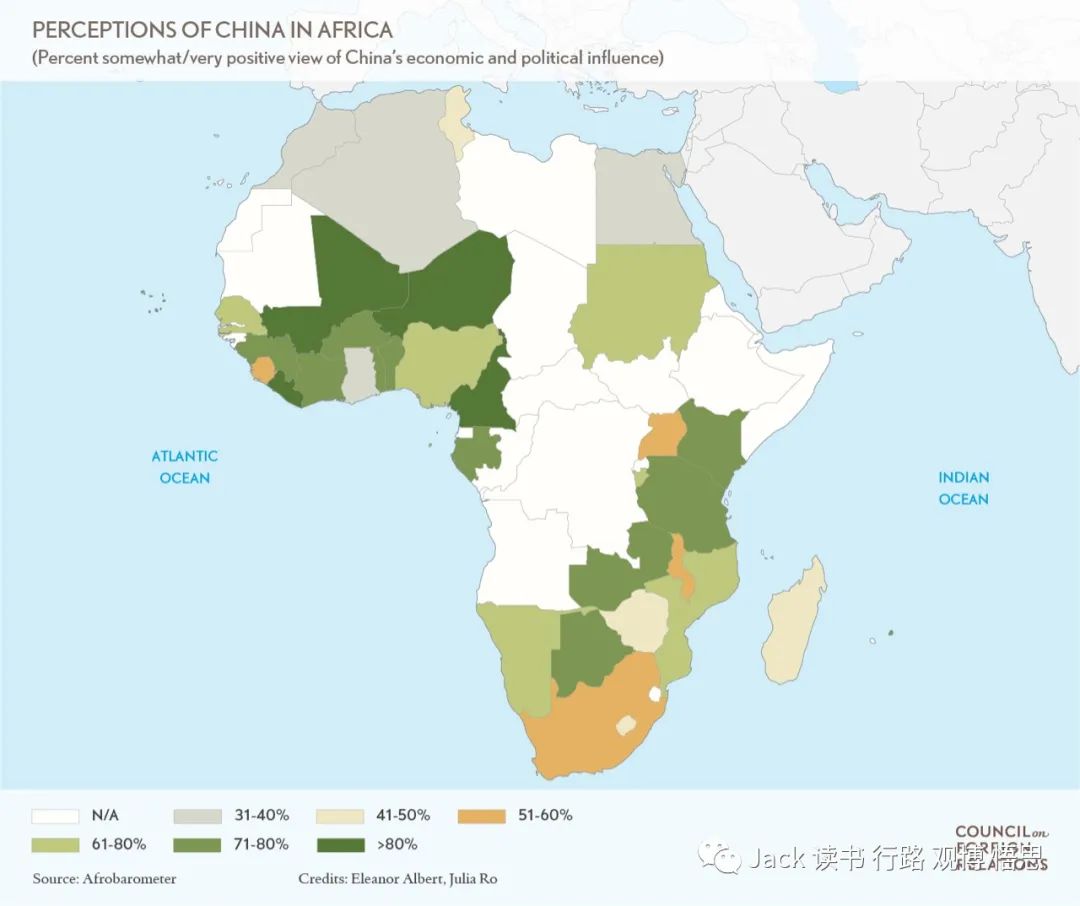
(A map showing the growing influence of China in Africa)
Moreover, the internal conflicts between the different countries and ethnicities are unlikely to end soon. The issues are deep-rooted and would require massive amounts of international effort and reorganization of the territories and of culturally matched local ethnic groups. What is more, Africa has recently started to become the new stage for proxy fights between China and the western powers. China has already established firm political and economic relations with many African countries, and it is improbable that the U.S. and its allies would sit back. As a result, resource-rich regions such as the DRC can potentially become the next Afghanistan, where the superpowers manipulate local forces to push their own interests and try to destroy each other.
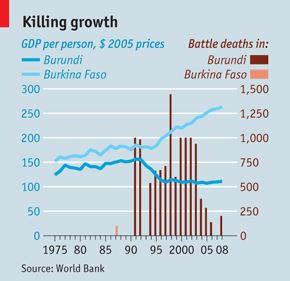
After a thorough examination of the long-lasting impacts of warfare on many African countries, it is necessary to look at the economics of violence. In a recent World Development Report, issued by the World Bank, the authors argued that violence is becoming the primary cause for economic poverty and the killer of economic development (The Economist, 2011). A pertinent example of the economic effects of violence is the small African state of Burundi. In 1990, the GDP of Burundi was at 1.1 billion USD. Three years later, in 1993, a civil war broke out. By that year, the GDP of Burundi was at 939 million USD, and in 1994 the number had fallen to 925 million (The World Bank, n.d.). This example shows that war can have immense negative impact on economic growth. Since wars in Africa are unlikely to end soon, the economies in that continent will probably not rehabilitate and develop.
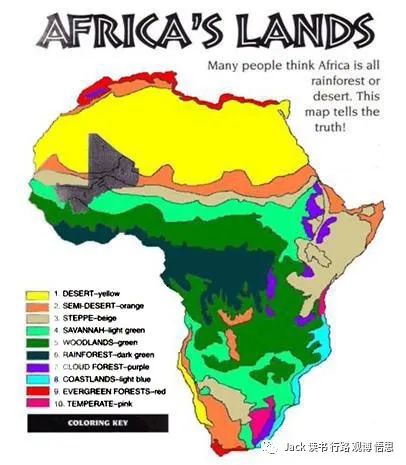
(A map showing the general environment and different climates of Africa)
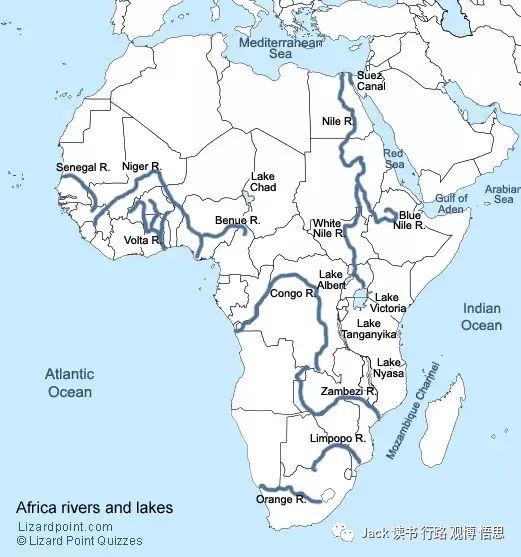
(Major waterbodies in Africa)
Furthermore, the natural environment in Africa impedes much economic development. The top third of Africa is relatively arid, consisting of the Sahara Desert and the Sahel region below. The bottom two-thirds of Africa are more temperate. The top third of Africa is unsuitable for vast areas of farming to progress. However, there are other problems related with the natural environment that makes economic progression difficult. One is the rivers. Africa has a lot of rivers, yet few can actually be harnessed efficiently for trade and other economic activities (Marshall, 2016, p.120). Take the Zambezi River as an example. Although it is the fourth longest river in Africa, white-water rapids and falls have made trade along the river difficult to conduct. The other rivers in Africa share similar traits, blocking easy trading routes. What is more, the water bodies in Africa are not connected. Unlike the Danube in Europe, the rivers in Africa hinder the formation of large trading regions, crucial for economic growth.
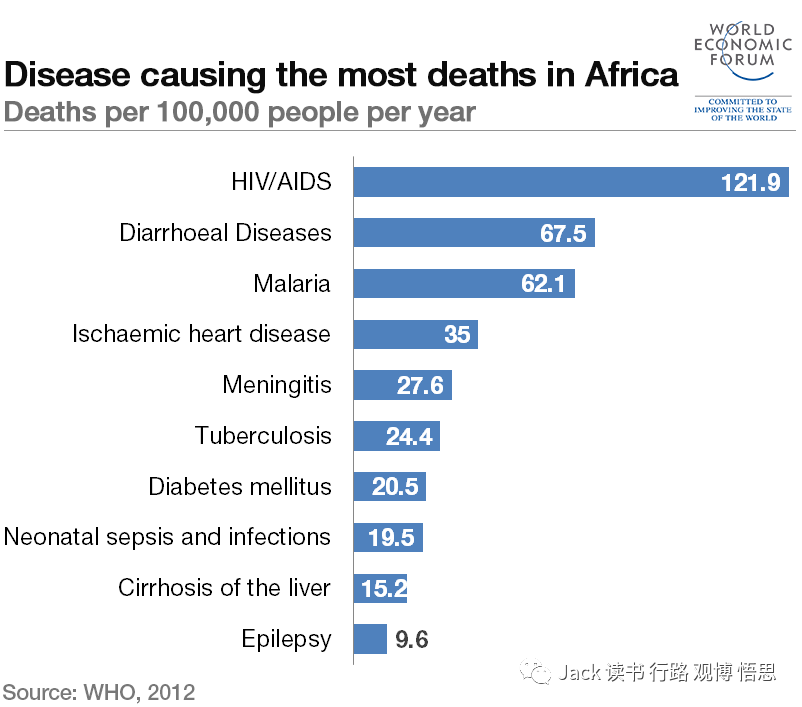
(Major diseases in Africa)
Additionally, Africa has been plagued with many deadly diseases and viruses, such as Ebola, malaria, etc. Even though vaccines have been created and dispersed and scientists have found multiple ways to deal with those diseases, they still claim many lives each year. And since many already-poor countries must budget an additional amount for fighting those diseases, they have less to spend on basic infrastructure or the establishment of economic zones. For instance, the Ebola outbreak in 2014 impacted Liberia, Guinea, and Sierra Leone to the tune of around $2.8 billion, according to the World Bank (Mercy Corps, 2019). If the $2.8 billion lost were invested into the respective economies, then economic growth would at least have been maintained.
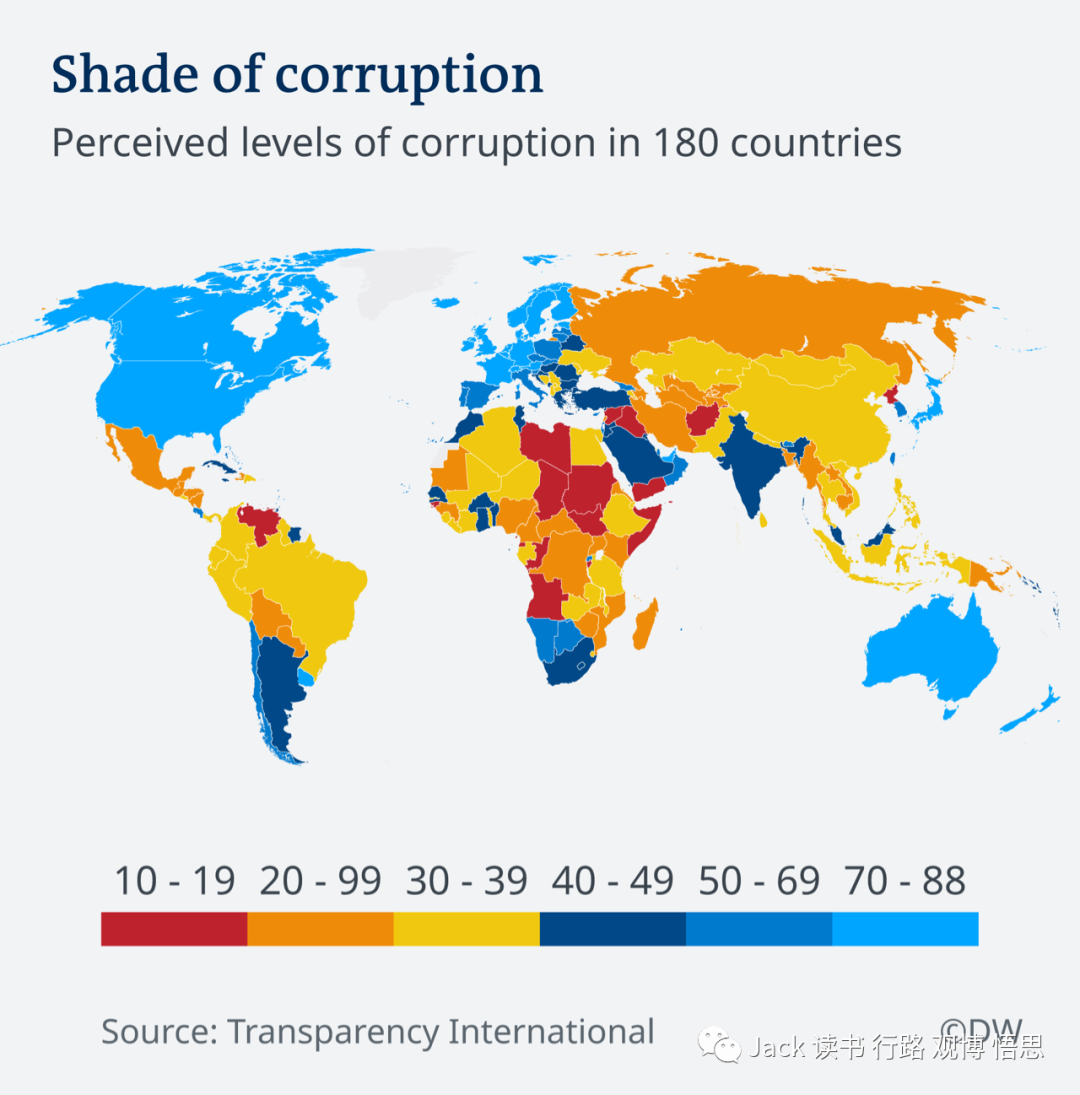
Another major human-caused problem is rampant corruption. Transparency International, a Berlin-based global NGO that focuses on reducing graft, ran a survey in December 2015. According to the survey, 22% of Africans who had contact with public services admitted having paid a bribe in 2015. In Kenya and Nigeria, two relatively important economies, the number were 37% and 43% respectively (The Economist, 2015). Corruption could significantly hold back development. For instance, a The Economist article reveals that in 2015, ballpoint pens were being bought at $85 each, and wheelbarrows for $1,000, in Kenya. At the same time, the government is “running a fiscal deficit of almost 9% of GDP, forcing it to block pay raises for teachers and spending on such things as repairing roads.” South Africa was once an economic powerhouse in Africa. However, in recent years corruption has exploded. According to another article by The Economist, South Africa’s economy has been floundering primarily because of large-scale mismanagement and corruption (The Economist, 2016). South Africa’s Corruption Perceptions Index is at 44, and in 2016 the economic growth rate was only at 0.5% and was expected to not exceed 2% growth in the coming years (Knoema, 2020). Many other African countries, including Nigeria, Botswana, Seychelles, etc. face similar issues. If corruption remains unchecked, then economic growth and its attendant benefits will remain absent.
Admittedly, opponents of this negative stance on economic progression can argue that today, with the advancement in technology and globalization, most of the geographical barriers have been broken with industrial power, and vast amounts of minerals and oil have been extracted from Africa, creating huge economic profit. However, this idea is flawed in many ways. For one, economic growth in many countries is still dependent on global prices for minerals and oil. For example, countries whose national budget are predicated on receiving $100 per barrel of oil have little to fall back on when prices drop to $80 or $60. For another, manufacturing-output levels in Africa are still close to where they were in the 1970s, and due to the mayhem and inability to save money, may not develop much in the future (The Economist, 2011).
Overall, due to the continuous mayhem and warfare that are more likely to intensify than stop, the hindersome natural environment, and widespread negative human factors across the region, there is little optimism for economic development in the future. According to economic theory, economic development must rely on a stabilized, peaceful, state, a helpful nature, and a competent government. Few African countries possess all these factors. Also, more fundamentally, most countries in Africa do not have a main ethnic group, nor are their governments secular. Possessing a main ethnic group and having a secular government are crucial for economic development. For example, China, Japan, and even the U.S., have a major ethnicity. As a result, internal strife can be mitigated, and hearts can be unified for a common goal, one mostly free from religious interests. Mustafa Kemal “Atatürk”, a champion of this approach and the founder of modern Turkey, demonstrated that secularizing his government during his governance, lead to rapid economic growth. In today’s world, science, knowledge, and reason are the bedrocks of economic development. In all aspects, hope in Africa remains dim, and there is a lot of work to do.
WORKS CITED
The Economist. (2011, April 16). The economics of violence. Economist.com.
Retrieved July 29, 2021, from https://www.economist.com/international/2011/
04/14/the-economics-of-violence
The Economist. (2015, December 3). The scale of corruption in Africa.
Economist.com. Retrieved July 27, 2021, from https://www.economist.com/
middle-east-and-africa/2015/12/03/the-scale-of-corruption-in-africa
The Economist. (2016, November 26). How corruption and bad policies are
strangling South Africa. Economist.com. Retrieved July 28, 2021, from
https://www.economist.com/middle-east-and-africa/2016/11/26/
how-corruption-and-bad-policies-are-strangling-south-africa
Knoema. (2020). South Africa corruption perceptions index, 2001-2020.
Knoema.com. Retrieved July 28, 2021, from https://knoema.com/atlas/
South-Africa/Corruption-perceptions-index
Marshall, T. (2016). Prisoners of geography: Ten maps that explain everything
about the world. Scribner.
Mercy Corps. (2019, March 6). Chapter 4: How does Ebola affect the economy?
Mercycorps.org. Retrieved July 29, 2021, from https://www.mercycorps.org/
blog/ebola-outbreaks-africa-guide/chapter-4
The World Bank. (n.d.). GDP growth (annual %) - Burundi. Data.worldbank.org.
Retrieved July 29, 2021, from https://data.worldbank.org/indicator/
NY.GDP.MKTP.KD.ZG?locations=BI
PICTURES CITED
https://africacenter.org/spotlight/africas-unresolved-conflicts-a-key-driver-of-food-insecurity/
https://www.researchgate.net/figure/Map-of-Africa-and-Europe-showing-the-three-African-MAFE-countries-and-the-six-European_fig1_276901051
https://www.researchgate.net/figure/Map-of-the-Democratic-Republic-of-Congo-showing-crude-under-five-mortality-rate-by_fig1_260993555
https://www.cfr.org/backgrounder/china-africa
https://www.economist.com/international/2011/04/14/the-economics-of-violence
https://www.pinterest.com/pin/574701602427205735/
https://www.weforum.org/agenda/2015/08/which-diseases-africa/
https://www.dw.com/en/sub-saharan-africa-needs-to-take-the-corruption-bull-by-the-horns/a-47282807
https://www.nationsonline.org/oneworld/africa_map.htm
非洲经常被称为 "被带上镣铐的大陆"。虽然目前国际社会已经采取了很多行动,试图去除非洲的 "镣铐",但总的来说,在过去的几个世纪和几十年里,世界并没有看到非洲有什么实质性的经济或政治发展,而且在未来可能也不会看到。这是因为众多 "热点 "冲突、整体不利的自然环境和猖獗的腐败造成了长期不利影响,使经济发展变得困难。

(非洲的各地冲突)
非洲经济进步的希望很渺茫--首先是由于该地区的长期冲突。非洲似乎与暴力并肩而行。在整个非洲多个地方发生的大规模冲突可以归因于欧洲殖民者留下的混乱局面。在15、16和17世纪,英国、法国等欧洲强国剥削和入侵了非洲的许多地方。他们的目的是攫取丰富的自然资源,控制奴隶市场,并建立殖民地(Marshall, 2016, p. 121)。

(与殖民有关的欧洲与非洲国家)
回到那些宏伟的欧洲首都,各国政府拿出非洲的等高线地图,在上面画线,标记他们的新领土。然而,正如英国著名记者、作家蒂姆-马歇尔在他的《地理的囚徒》一书中写道:"......这些线更多的是关于每个大国的探险家、军事力量和商人在地图上前进了多远,而不是生活在线之间的人们觉得自己是什么,或者他们想如何组织自己。" 由于欧洲人的轻率决定,许多区域冲突开始毒害非洲大陆(Marshall, 2016, p. 122)。

(刚果民主共和国地图)
以刚果民主共和国("The DRC")为例。刚果民主共和国的人民分为两百多个民族,有几百种语言。刚果以前是由比利时人殖民的。他们没有考虑当地人的种族分布和宗教势力,而是简单地把它们分割开来。因此,当比利时人于1960年离开时,内战立即开始,并随着时间的推移不断加剧。直到今天,内战仍然困扰着刚果民主共和国,使这个自然资源丰富的国家甚至不能被列入 "发展中国家"行列。在非洲有许多类似的惨案,比如在利比亚、苏丹、索马里、肯尼亚、安哥拉、尼日利亚和马里,这些案例说明了源于欧洲殖民时代的冲突所带来的长期影响(Marshall, 2016, p. 124)。

中国在非洲的不断扩大的影响力
此外,不同国家和民族之间的内部冲突也不可能很快结束。这些问题是根深蒂固的,需要大量的国际努力,以及对领土和文化上相匹配的当地民族进行重组。更重要的是,非洲最近已经开始成为中国和西方大国之间代理斗争的新舞台。中国已经与许多非洲国家建立了牢固的政治和经济关系,美国及其盟国不可能坐视不理。因此,像刚果这样资源丰富的地区有可能成为下一个阿富汗,超级大国操纵当地的力量来攫取自己的利益并试图摧毁对方。

战争对于布基纳法索与布隆迪的影响
在彻底研究了战争对许多非洲国家的长期影响之后,有必要看看战争的经济学。在世界银行最近发布的一份世界发展报告中,作者认为,战争正在成为经济贫困的主要原因和经济发展的杀手(The Economist, 2011)。战争所带来的经济影响在非洲小国布隆迪那里展露无遗。1990年,布隆迪的国内生产总值为11亿美元。三年后,即1993年,一场内战爆发了。这一年,布隆迪的GDP为9.39亿美元,1994年这个数字下降到9.25亿美元(世界银行,n.d)。这个例子表明,战争会对经济增长产生巨大的负面影响。而且,由于非洲的战争不可能很快结束,该大陆的经济可能不会恢复和发展。

非洲的自然环境
此外,非洲的自然环境也阻碍了很多经济发展。非洲顶部的三分之一是相对干旱的,由撒哈拉沙漠和下面的萨赫勒地区组成。非洲底部三分之二的地区比较温和。非洲顶部的三分之一不适合大面积的农业发展。然而,还有其他与自然环境有关的问题,使经济发展难以进行。一个是河流。非洲有很多河流,但真正能有效利用于贸易和其他经济活动的河流很少(Marshall, 2016, p.120)。以赞比西河为例。虽然它是非洲第四长的河流,但白水激流和瀑布使河运贸易变得几乎不可行。 非洲的其他河流也有类似的特征,阻断了便捷的贸易路线。更重要的是,非洲的水体并不相连。与欧洲的多瑙河不同,非洲的河流阻碍了大型贸易区域的形成,而这对经济增长至关重要。

非洲的各种疾病
此外,非洲一直受到许多致命疾病和病毒的困扰,如埃博拉、疟疾等。尽管疫苗已经被创造和传播,科学家们也找到了应对这些疾病的多种方法,但它们每年仍会夺去许多人的生命。而且,由于许多已经很穷的国家必须为防治这些疾病编列额外的预算,他们用于建设基础设施或经济区的资金就更少了。例如,根据世界银行的数据,2014年的埃博拉疫情对利比里亚、几内亚和塞拉利昂造成了约28亿美元的影响(Mercy Corps, 2019)。如果这28亿美元的损失被投入到各自的经济中,那么至少可以保持一定的经济增长。

世界的腐败情况
另一个由人类造成的主要问题是猖獗的腐败。“透明国际”是一个总部设在柏林的全球非政府组织,专注于减少贪污。这个组织在2015年12月进行了一项调查。根据该调查,22%的与公共服务有接触的非洲人承认在2015年支付过贿赂。在肯尼亚和尼日利亚这两个相对重要的经济体中,这一数字分别为37%和43%(The Economist, 2015)。腐败会严重阻碍发展。例如,《经济学人》的一篇文章显示,2015年,在肯尼亚,圆珠笔被以85美元一支的价格贩卖,手推车的售价更是达到惊人的1000美元。同时,政府 "财政赤字几乎占GDP的9%,迫使它阻止为教师加薪和修复道路等方面的支出。" 南非曾经是非洲的一个经济强国。然而,近年来,腐败已呈蔓延趋势。根据《经济学人》的另一篇文章,南非的经济一直处于困境,主要是因为大规模的管理不善和腐败(The Economist, 2016)。南非的腐败感知指数为44,2016年的经济增长率只有0.5%,预计未来几年的增长率不会超过2%(Knoema, 2020)。许多其他非洲国家,包括尼日利亚、博茨瓦纳、塞舌尔等都面临类似的问题。如果腐败仍然不受控制,那么经济增长和随之而来的利益将继续被扼杀。
诚然,反对这种消极立场的人可以说,今天,随着技术的进步和全球化的发展,大部分的地理障碍已经被工业力量打破,大量的矿物和石油已经从非洲开采出来,创造了巨大的经济利润。然而,这种想法在很多方面是有缺陷的。其一,许多国家的经济增长仍然依赖于全球矿产和石油的价格。例如,当石油价格下降到80美元或60美元时,那些期望以100美元一桶卖出的国家便没有什么经济依靠。另外,非洲的制造业产出水平仍然接近1970年代的水平,而且由于混乱和无法储蓄的能力,未来可能不会有太大发展(The Economist, 2011)。
总的来说,由于持续的混乱和战争更有可能加剧而不是停止,糟糕的自然环境,以及整个地区普遍存在的负面人为因素,未来的经济发展并不乐观。根据经济理论,经济发展必须依靠一个稳定、和平的国家,一个有益的自然环境,以及一个有能力的政府。没有几个非洲国家拥有所有这些因素。另外,更根本的是,非洲的大多数国家没有一个主体民族,它们的政府也不是世俗的。拥有一个主体民族和一个世俗的政府对经济发展至关重要。例如,中国、日本,甚至美国都有一个主体民族。因此,内部纷争可以得到缓解,人心可以为了一个共同的目标而团结起来,且这个目标大多没有宗教利益。穆斯塔法-凯末尔-阿塔图尔克(Mustafa Kemal "Atatürk")是这种方法的倡导者,也是现代土耳其的创始人,他在执政期间证明了政府的世俗化是完全可以导致经济的快速增长。在当今世界,科学、知识和理性是经济发展的基石。从各方面来看,非洲的希望依然渺茫,还有很多工作要做。
- 本文标签: 原创
- 本文链接: http://www.jack-utopia.cn//article/434
- 版权声明: 本文由Jack原创发布,转载请遵循《署名-非商业性使用-相同方式共享 4.0 国际 (CC BY-NC-SA 4.0)》许可协议授权
